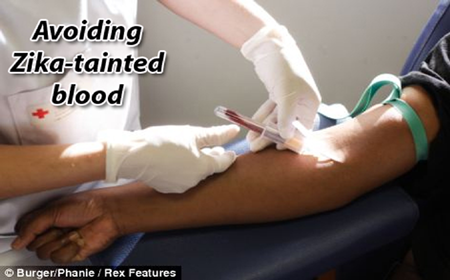BELIZE CITY, Thurs. Feb. 11, 2016–As information unfolds about the ways in which Zika can be spread, not just by mosquitos, but also through blood and semen, concerned citizens are also clamoring for measures to limit the spread of the disease.
Although Zika is said to be milder than both dengue and Chikungunya, with symptoms appearing in only 20% of the cases, the World Health Organization has declared an international public health emergency due to its rapid spread across the Americas and its possible link to brain damage and potential deaths in babies, as well as Gullain-Barré syndrome and possible paralysis in rare cases.
Advisories call for measures to limit transmission via sexual intercourse, apart from through mosquito bites. With Brazil reporting cases contracted through blood transfusion, there are now questions about what screening measures would be put in place to avoid the spread of Zika through blood.
According to a recent report, the American Red Cross has asked potential blood donors who have traveled to areas where Zika infection is active to wait 28 days before giving blood.
Today, we contacted the Belize Blood Bank to find out what screening measures were in place there, and we were directed to the Director of Health Services, Dr. Marvin Manzanero.
He told us that catching Zika through a blood transfusion is not something that we should be overly concerned about. He said that while Zika can be passed through blood, someone receiving the virus may not even manifest symptoms.
In cases recently reported out of Brazil, two patients had received Zika-tainted blood. One had died, but not because of Zika, officials there said.
In Belize, blood is usually screened for things like hepatitis B and C, HIV, chagas, and syphilis. Persons who may have had illnesses causing fever and rash, which would include dengue and Zika, in the 6 months prior to their visit to the blood bank, and who had a travel history suggesting that they may have contracted an illness, are not allowed to donate. Screening is, therefore, done by exclusion and not through routine blood testing, we were told.
It has been reported that the Canadian Blood Services, which manages most blood donations in Canada, is asking residents who travel outside Canada, the continental United States and Europe, not to donate blood for 21 days after their return.
In Brazil, the health ministry has advised blood donation centers that those infected with Zika or dengue shouldn’t give blood for 30 days after recovery from an active infection.

